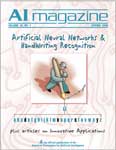AI, Decision Science, and Psychological Theory in Decisions about People: A Case Study in Jury Selection
DOI:
https://doi.org/10.1609/aimag.v19i1.1357Abstract
AI theory and its technology is rarely consulted in attempted resolutions of social problems. Solutions often require that decision-analytic techniques be combined with expert systems. The emerging literature on combined systems is directed at domains where the prediction of human behavior is not required. A foundational shift in AI presuppositions to intelligent agents working in collaboration provides an opportunity to explore efforts to improve the performance of social institutions that depend on accurate prediction of human behavior. Professionals concerned with human outcomes make decisions that are intuitive or analytic or some combination of both. The relative efficacy of each decision type is described. Justifications and methodology are presented for combining analytic and intuitive agents in an expert system that supports professional decision making. Psychological grounds for the allocation of functions to agents are reviewed. Jury selection, the prototype domain, is described as a process typical of others that, at their core, require the prediction of human behavior. The domain is used to demonstrate the formal components, steps in construction, and challenges of developing and testing a hybrid system based on the allocation of function. The principle that the research taught us about the allocation of function is "the rational and predictive primacy of a statistical agent to an intuitive agent in construction of a production system." We learned that the reverse of this principle is appropriate for identifying and classifying human responses to questions and generally dealing with unexpected events in a courtroom and elsewhere. This principle and approach should be paradigmatic of the class of collaborative models that capitalizes on the unique strengths of AI knowledge-based systems. The methodology used in the courtroom is described along with the history of the project and implications for the development of related AI systems. Empirical data are reported that portend the possibility of impressive predictive ability in the combined approach relative to other current approaches. Problems encountered and those remaining are discussed, including the limits of empirical research and standards of validation. The system presented demonstrates the challenges and opportunities inherent in developing and using AI-collaborative technology to solve social problems.Downloads
Published
1998-03-15
How to Cite
Lachman, R. (1998). AI, Decision Science, and Psychological Theory in Decisions about People: A Case Study in Jury Selection. AI Magazine, 19(1), 111. https://doi.org/10.1609/aimag.v19i1.1357
Issue
Section
Articles
License
This is an open access article under the terms of the Creative Commons Attribution License, which permits use, distribution and reproduction in any medium, provided the original work is properly cited.
Authors who publish with this journal agree to the following terms:
- The author(s) warrants that they are the sole author and owner of the copyright in the above article/paper, except for those portions shown to be in quotations; that the article/paper is original throughout; and that the undersigned right to make the grants set forth above is complete and unencumbered.
- The author(s) agree that if anyone brings any claim or action alleging facts that, if true, constitute a breach of any of the foregoing warranties, the author(s) will hold harmless and indemnify AAAI, their grantees, their licensees, and their distributors against any liability, whether under judgment, decree, or compromise, and any legal fees and expenses arising out of that claim or actions, and the undersigned will cooperate fully in any defense AAAI may make to such claim or action. Moreover, the undersigned agrees to cooperate in any claim or other action seeking to protect or enforce any right the undersigned has granted to AAAI in the article/paper. If any such claim or action fails because of facts that constitute a breach of any of the foregoing warranties, the undersigned agrees to reimburse whomever brings such claim or action for expenses and attorneys’ fees incurred therein.
- Author(s) retain all proprietary rights other than copyright (such as patent rights).
- Author(s) may make personal reuse of all or portions of the above article/paper in other works of their own authorship.
- Author(s) may reproduce, or have reproduced, their article/paper for the author’s personal use, or for company use provided that original work is property cited, and that the copies are not used in a way that implies AAAI endorsement of a product or service of an employer, and that the copies per se are not offered for sale. The foregoing right shall not permit the posting of the article/paper in electronic or digital form on any computer network, except by the author or the author’s employer, and then only on the author’s or the employer’s own web page or ftp site. Such web page or ftp site, in addition to the aforementioned requirements of this Paragraph, must provide an electronic reference or link back to the AAAI electronic server, and shall not post other AAAI copyrighted materials not of the author’s or the employer’s creation (including tables of contents with links to other papers) without AAAI’s written permission.
- Author(s) may make limited distribution of all or portions of their article/paper prior to publication.
- In the case of work performed under U.S. Government contract, AAAI grants the U.S. Government royalty-free permission to reproduce all or portions of the above article/paper, and to authorize others to do so, for U.S. Government purposes.
- In the event the above article/paper is not accepted and published by AAAI, or is withdrawn by the author(s) before acceptance by AAAI, this agreement becomes null and void.

